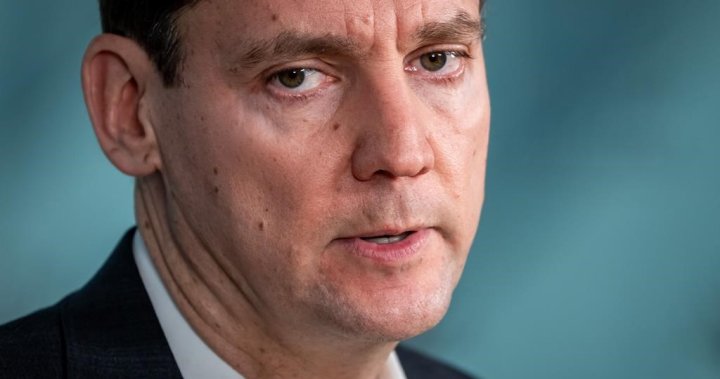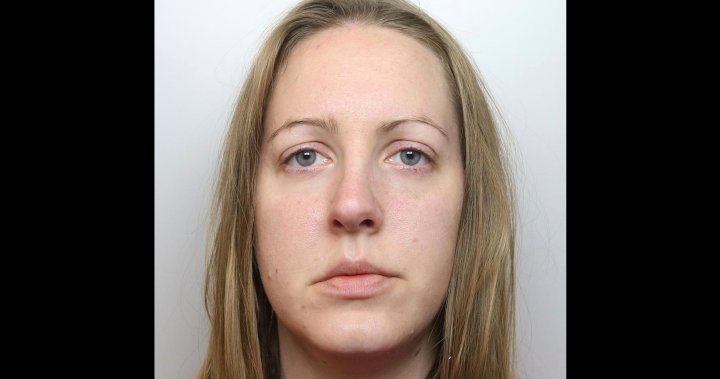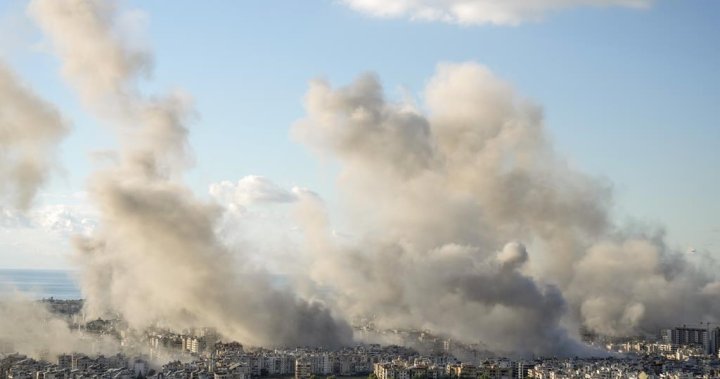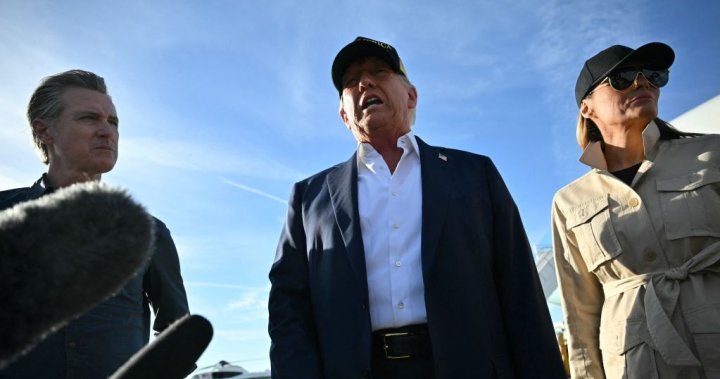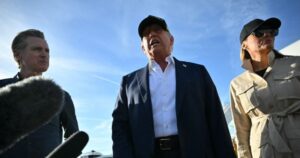Israeli Prime Minister Benjamin Netanyahu said on Tuesday that he would recommend that his government adopt a US-brokered ceasefire agreement with Lebanese Hezbollah, at a time when Israeli warplanes bombed areas in Lebanon, killing at least 23 people.
The Israeli military also issued a series of evacuation warnings – a sign that it was aiming to punish Hezbollah until the final moments before any ceasefire began. For the first time in the conflict, Israeli ground forces reached parts of the Litani River in Lebanon, the focal point of the emerging agreement.
Netanyahu said in a televised statement that he would present the ceasefire to government ministers later on Tuesday, paving the way for an end to the nearly 14-month-old fighting.
Netanyahu said the vote was expected to take place later on Tuesday. It was not immediately clear when the ceasefire would take effect, and the exact terms of the agreement were not revealed. The agreement does not affect Israel’s war against Hamas in Gaza, which shows no signs of ending.
Story continues below ad
Evacuation warnings covered many areas, including parts of Beirut that had not previously been targeted. The warnings, as well as fear that Israel would intensify its attacks before the ceasefire, led residents to flee. Traffic was heavy, and some cars had mattresses tied to them. Dozens of people, some wearing pajamas, gathered in a central square, huddled under blankets or standing around fires as Israeli drones flew high overhead.
Meanwhile, Hezbollah continued to fire rockets, triggering sirens in northern Israel.

A powerful explosion rocks the Beirut suburb while Israel launches air strikes on Lebanon
Lebanese officials said Hezbollah also supports the agreement. If all parties agree to the deal, it would be a major step toward ending the war between Israel and Hezbollah that has stoked tensions across the region and raised fears of a broader conflict between Israel and Iran, Hezbollah’s sponsor.
The agreement calls for an initial cessation of fighting for two months and requires Hezbollah to end its armed presence in a wide area of southern Lebanon, while Israeli forces return to their side of the border. Thousands of Lebanese troops and UN peacekeepers will be deployed in the south, and an international committee headed by the United States will monitor compliance by all parties.
Story continues below ad
But implementation remains a big question mark. Israel demands the right to act if Hezbollah violates its obligations. Lebanese officials refused to write this in the proposal. Israeli Defense Minister Israel Katz insisted on Tuesday that the military would strike Hezbollah if the UN peacekeeping force, known as UNIFIL, did not provide “effective implementation” of the agreement.

Get breaking national news
For news affecting Canada and around the world, sign up to get breaking news alerts delivered to you right as they happen.
Speaking with UN Special Envoy Jeanine Hennis-Plasschaert, Katz said: “If you do not act, we will act with great force.”
Josep Borrell, the European Union’s top diplomat, said on Tuesday that Israel’s security concerns were addressed in the agreement, which was also brokered by France.
He added: “There is no excuse for not implementing the ceasefire. Otherwise, Lebanon will collapse.” He said that France will participate in the ceasefire implementation committee at the request of Lebanon.
The bombing continues on the southern suburbs of Beirut
Even as Israeli, American, Lebanese and international officials express increasing optimism about a ceasefire, Israel has continued its campaign in Lebanon, which it says is aimed at crippling Hezbollah’s military capabilities.
Story continues below ad
An Israeli raid on Tuesday destroyed a residential building in the Basta district of central Beirut — the second time in recent days that warplanes have bombed the crowded area near the city center. At least seven people were killed and 37 others were injured, according to the Lebanese Ministry of Health.
Three people were killed in a separate raid in Beirut and three in a raid on a Palestinian refugee camp in southern Lebanon. Lebanese official media said that ten other people were killed in the eastern Baalbek governorate. Israel says it is targeting Hezbollah fighters and their infrastructure.

Israel and Hezbollah: “There is no excuse” for not implementing the ceasefire, says the European Union president
Earlier, Israeli aircraft bombed at least six buildings in the southern suburb of Beirut. One of the raids occurred near the country’s only airport, sending plumes of smoke into the sky. The airport continued to operate despite its location on the Mediterranean coast next to the densely populated suburbs where many Hezbollah operations are based.
Story continues below ad
Israeli military spokesman Avichay Adraee issued warnings to evacuate 20 buildings in the suburbs, in addition to a warning to the southern town of Naqoura, where UNIFIL forces are based.
UNIFIL spokesman Andrea Tenenti told The Associated Press that peacekeepers would not be evacuated.
Trending now
-

Macy’s says one employee hid up to $154 million in delivery expenses
-

Canada Post says it missed deliveries of nearly 10 million packages amid the strike
Other strikes hit the southern city of Tyre, where the Israeli army said it killed a local Hezbollah commander.
The Israeli army also said that its ground forces clashed with Hezbollah forces and destroyed rocket launchers in the Saluki area on the eastern end of the Litani River, a few kilometers from the Israeli border.
Previous hopes for a ceasefire were dashed
Under the ceasefire agreement, Hezbollah will be required to move its forces north of the Litani, which in places lies about 30 kilometers (20 miles) north of the border.
Story continues below ad
A ceasefire between Israel and Hezbollah, the most powerful Iranian-backed force in the region, is likely to calm regional tensions that have led to fears of an all-out direct war between Israel and Iran. It is not clear how the ceasefire will affect the war between Israel and Hamas in Gaza. Hezbollah has long insisted that it will not agree to a ceasefire until the war in Gaza ends, but it dropped this condition.
Hezbollah began firing into northern Israel, saying it was showing support for the Palestinians, a day after Hamas carried out its October 7, 2023, attack on southern Israel, sparking the Gaza War. Israel responded by firing at Hezbollah, and the two sides have exchanged missile barrages ever since.
Israel escalated its bombing campaign in mid-September and later sent troops into Lebanon, vowing to put an end to Hezbollah’s fire so that tens of thousands of evacuated Israelis could return to their homes.
More than 3,760 people have been killed by Israeli fire in Lebanon over the past 13 months, many of them civilians, according to Lebanese health officials. The bombing led to the displacement of 1.2 million people from their homes. Israel says it has killed more than 2,000 Hezbollah members.

Israel and Gaza: The United States vetoes the UN Security Council resolution on the ceasefire
Hezbollah’s fire forced about 50,000 Israelis to evacuate in the north of the country, and its missiles reached the far south of Israel, even Tel Aviv. At least 75 people were killed, more than half of them civilians. More than 50 Israeli soldiers were killed in the ground attack in Lebanon.
Story continues below ad
After previous hopes for a ceasefire were dashed, American officials warned that the negotiations were not yet complete, and pointed to the possibility of last-minute obstacles that would delay or destroy the agreement.
White House national security spokesman John Kirby said: “Nothing will be done until everything is done.”
While the ceasefire proposal is expected to be approved if Netanyahu puts it to a vote in his security cabinet, one hard-line member, National Security Minister Itamar Ben Gvir, said he would oppose it. He said on the X program that the agreement with Lebanon would be a “big mistake” and a “missed historic opportunity to eliminate Hezbollah.”
—Federman reported from Jerusalem. Associated Press reporters Lujain Guo and Sally Abu al-Joud in Beirut contributed.



